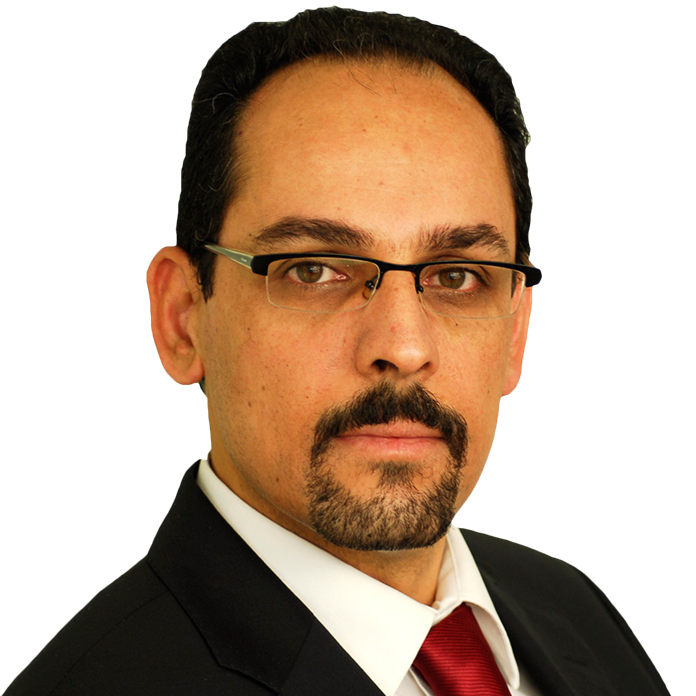Last week, ISIS made two advances, one strategic, the other symbolic in Iraq and Syria. It captured Ramadi, a key city in the heartland of Iraq's al-Anbar region and about 110 kilometers away from Baghdad. It then took Palmyra in Syria where ISIS may extend its violent extremism to the historic relics of this ancient city. Now the world is on its edge dreading new stories of puritanical barbarism in both places. There is no question that these ancient sites, national heritage of the Syrian people and the world, must be protected. But Ahmad Zaidan, Al Jazeera's Islamabad bureau chief and a Syrian journalist himself, points to the irony of "the world turn(ing) to Twitter to save the centuries-old ruins" in Palmyra while the Assad regime continues its massacres of Syria and its people.
One wonders how many more genocidal attacks on the Syrian people and its national heritage we will have to witness before we realize that the human carnage perpetrated by both the Assad regime and ISIS will not end without ending this bloody war. ISIS and the company use the Syrian war for recruitment and territorial expansion. The Assad regime has lost control over much of Syria but uses ISIS to divide and weaken the moderate Syrian opposition. It also uses ISIS barbarism as part of its propaganda war. As long as the Syrian war continues, neither the suffering of the Syrian people nor the threat of ISIS will end.
This bloody war will not end until and unless the Assad regime is removed from power and a political transition is put in place. Even if you care more about eliminating ISIS terrorism and protecting ancient relics than helping the Syrian people save themselves from the tyranny of a killing machine, one needs to see the connection between the Assad regime staying in power and ISIS spreading terror and destruction across the vast swaths of Syrian and Iraqi territories.
There is near universal agreement that Mr. Assad can no longer have a place in the future of Syria for both political and legal reasons. The Assad regime's war crimes and crimes against humanity, which killed 300,000 people, turned millions into refugees and destroyed cities, gets less and less attention than the destruction of relics by ISIS. But there is already enough evidence for a robust case of war crimes against Mr. Assad.
Mr. Assad's forces kill indiscriminately with barrel bombs and chemical weapons and cross the so-called "red lines" of the world on a daily basis. The rise of ISIS has not made the Assad regime less of a threat to Syrian people and the region. The trouble is that everyone's dictionary has a different definition for "political solution" in Syria. A moral and conceptual clarity is needed if we are to have a proper perspective to end this war.
For the Assad regime, "political solution" is the surrender of the opposition and a return to the pre-war order. It has made this abundantly clear in the two Geneva meetings, which did not produce anything close to a political solution, as well as in the other low-level meetings in Moscow, Cairo and Astana over the last 12 months. The Assad regime and its backers are not interested in a genuine political solution that will address the root cause of the problem, which is the oppressive and brutal existence of the Assad regime. This is what started the war in the first place and this is where a fair, meaningful and sustainable political resolution will be found.
Some seem to think that a political solution will somehow emerge from somewhere on a sunny morning and suddenly solve all the terrible problems in the deeply battered Syria. If the last two years have shown anything, it is that a political resolution to the Syrian conflict is possible only if the Assad regime is made to realize that it cannot win this war. As the Geneva talks outlined, a political solution in Syria entails a process of transition whereby the Assad regime hands over power to a governing body that will be composed of the moderate Syrian opposition on the one hand and elements of the current regime in Damascus on the other with the supervision of the international community. How to identify these partners and agree on a timetable for the "day after scenario" is not an easy job. But it is not impossible either.
The Syrian National Council (SNC) is the main umbrella political body representing the Syrian opposition. Recognized by more than 100 countries as the legitimate representative of the Syrian people, the SNC will play a key role in future negotiations. But it has to be supported and empowered by the international community so that it comes to the negotiating table from a position of strength, not weakness. Neither Mr. Assad nor his backers will take a divided and weak opposition serious. This is where the support of the international community is crucial to unify and empower the Syrian opposition.
Qualitative change in power dynamics on the ground will make political negotiations substantive and result-oriented. It will empower the Syrian opposition and speed up transition to the post-Assad phase. As Turkey has maintained from the beginning, only coordinated action through the coalition that supports the Syrian opposition can prepare the ground for effective political negotiations.
Source:




















